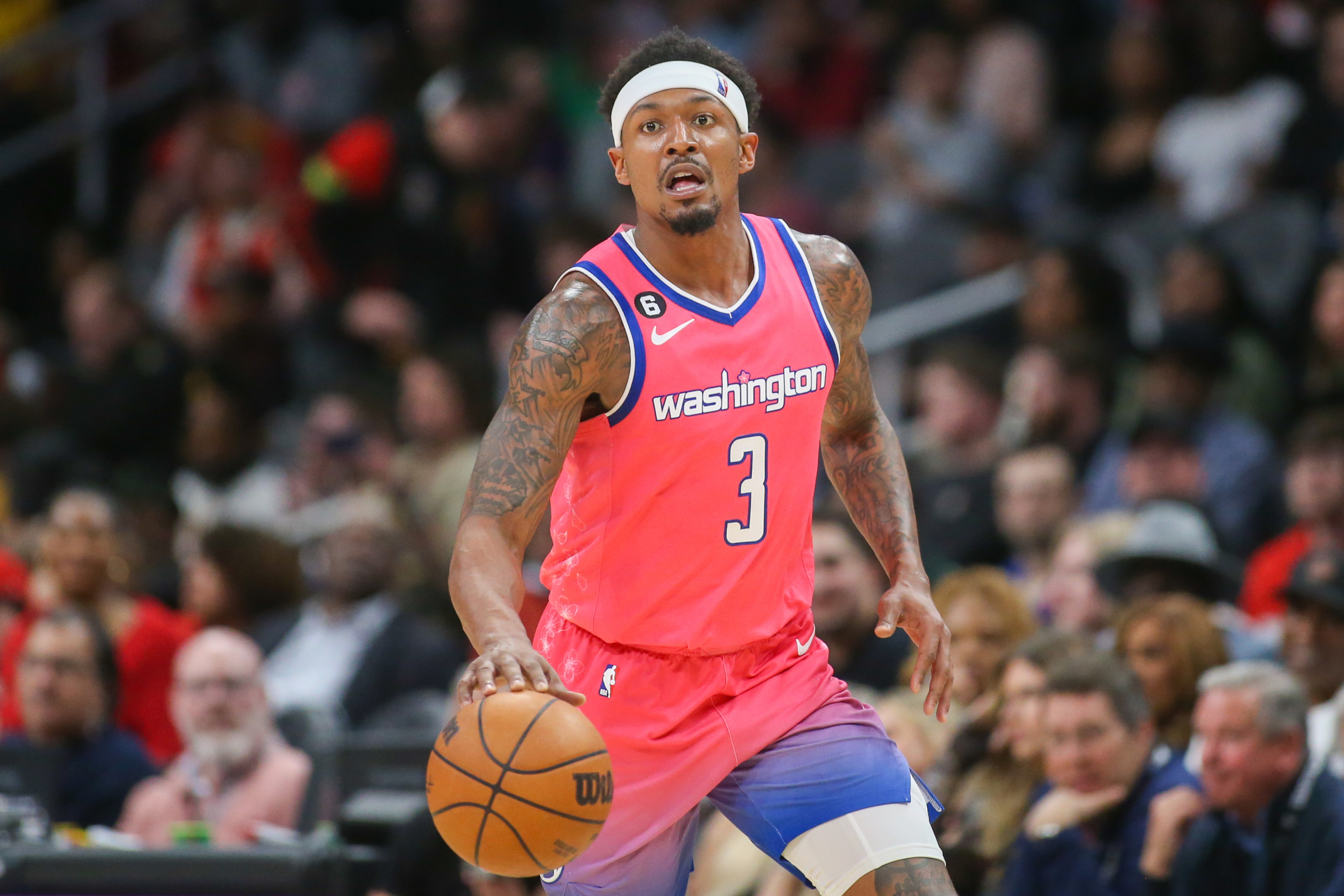It feels like the Washington Wizards have been in a poverty time loop for the last decade. While other franchises have ebbed and flowed in and out of rebuild mode, the Wizards have been stuck in purgatory, too good for high NBA Draft lottery selections and not good enough to advance in the playoffs.
Things haven’t been that bad on the playoff front. They’ve made the postseason five times in the last 10 seasons. That’s a decent mark. But they’ve only advanced past the first round in three of those matchups. They’ve made the postseason mainly on the back of Bradley Beal, the best scorer in Wizards history, behind Elvin Hayes.
The Washington Wizards have averaged a .485 win percentage over the last decade, which is pretty horrid considering how bad the Eastern Conference and the Southeast Division, more specifically, have been during that stretch. The Wizards have tried and failed to retool around Beal since he was drafted No. 3 overall in 2012. First, he was paired with John Wall, a five-time All-Star but an awkward fit with Beal. The two only played 359 out of a possible 492 games together.
Washington Wizards’ search for help
Wall, who is currently a free agent, was the best player Beal ever played alongside. Beal was also paired with Russell Westbrook, brought over from the Houston Rockets in a trade for Wall in a swapping of albatross contracts in 2020. Westbrook and Beal paired for only one season, losing in five games in the first round to the Philadelphia 76ers.
Westbrook encapsulates the organizational ineptitude when building around Beal. The Washington Wizards have consistently gone after name guys, veterans past their prime, and defensively-challenged wings as Beal’s running mates. In addition, they’ve handed out some of the worst contracts of the last five years, like trading for Westbrook’s $47 million annual salary, Kristaps Porzingis’ $34 million annual salary, re-signing Davis Bertans to a five-year, $80 million deal, and worst of all, re-signing Beal to a five-year, $251 million maximum contract, paying him $57 million when he’s 33-years-old.
All the inflated overpays, and splashy trades for stars have only netted the Wizards’ mediocrity regarding wins. Even today, they have an ill-fitted roster around Beal. Kyle Kuzma has complained openly about his role with the team, even though he puts up career highs in points (21.2) and assists (3.7). Porzingis has returned to the All-Star numbers he put up in his final season with the New York Knicks (23.2 points per game, 49.8 percent field goal shooting, 38.5 percent 3-point shooting, 8.4 rebounds per game, and 2.7 blocks per game.
But Porzingis is up for an extension, and all signs have pointed to him returning to the team for the long term. If he opts out of his $36 million player option, the Washington Wizards could offer him a maximum of four years and $180 million. That would pair Beal and Porzingis together for the remainder of Beal’s extension, costing the Wizards nearly $100 million to barely make the play-in tournament, which they failed to make this season.
The rest of the roster consists of veterans past their prime — Monte Morris, Delon Wright, Kendrick Nunn, and Taj Gibson. Daniel Gafford provides interior defense and shot blocking but is raw offensively. Porzingis and Kuzma are the second and third options after Beal. But that hierarchy wasn’t good enough for even the play-in tournament, even with Kurzma averaging career-highs and KP playing like an All-Star.
Striking out in the NBA draft lottery
The Washington Wizards have struck out in the draft lottery, too. They punted on the development of Rui Hachimura, the ninth pick in the 2019 draft, after just four seasons. Deni Avdija, the ninth pick in the 2020 Draft (see a pattern here?), overlapped far too much with Hachimura and eventually Kuzma, who all play best as a tweener power forward. This created a logjam in the Wizard’s frontcourt, stifling all three’s development until Hachimura was traded in a salary dump this season with the Los Angeles Lakers.
Avidja seems to have hit the ceiling as a 9.2 ppg scorer with above-average passing ability. The 15th pick in 2021 has been the best selection thus far, averaging 10.8 ppg, .663 TS%, 3.7 Win Shares, and hitting threes on .43%. While he doesn’t have star potential, he does present as a modern sniper and a capable building block.
Their lottery pick last year, Johnny Davis (taken 10th), has been an absolute bust, averaging 3.9 ppg, 1.7 rpg, and 0.5 apg, and has only played in 24 of the team’s 78 games. The Washington Wizards don’t own any future first-round draft picks beyond their own. So their options are limited to continue building around Beal. Trading him seems like the most obvious choice this summer, but with KP likely re-signing, that would contradict Beal staying put.
Trying to answer the question of “What are the Wizards doing” is difficult. They continue to draft low-ceiling, high-floor guys better suited as role players while missing on star talent in the last three drafts Tyrese Haliburton, Tyrese Maxey, Immanuel Quickley, Alperen Sengun, and Jalen Williams.
What’s the plan? Their attempts at building around Beal have failed and, worse, have kept them in mediocrity, losing out on high lottery draft picks. Beal will turn 30 in June, and his points per game is already dropping. This summer will be the most pivotal in finally trading Beal before time runs out on netting a solid return. The real question is, are the Wizards competent enough to control their destiny? History says otherwise.
Lee Escobedo covers the NBA for Sportsnaut. You can follow him on Twitter at @_leeescobedo

